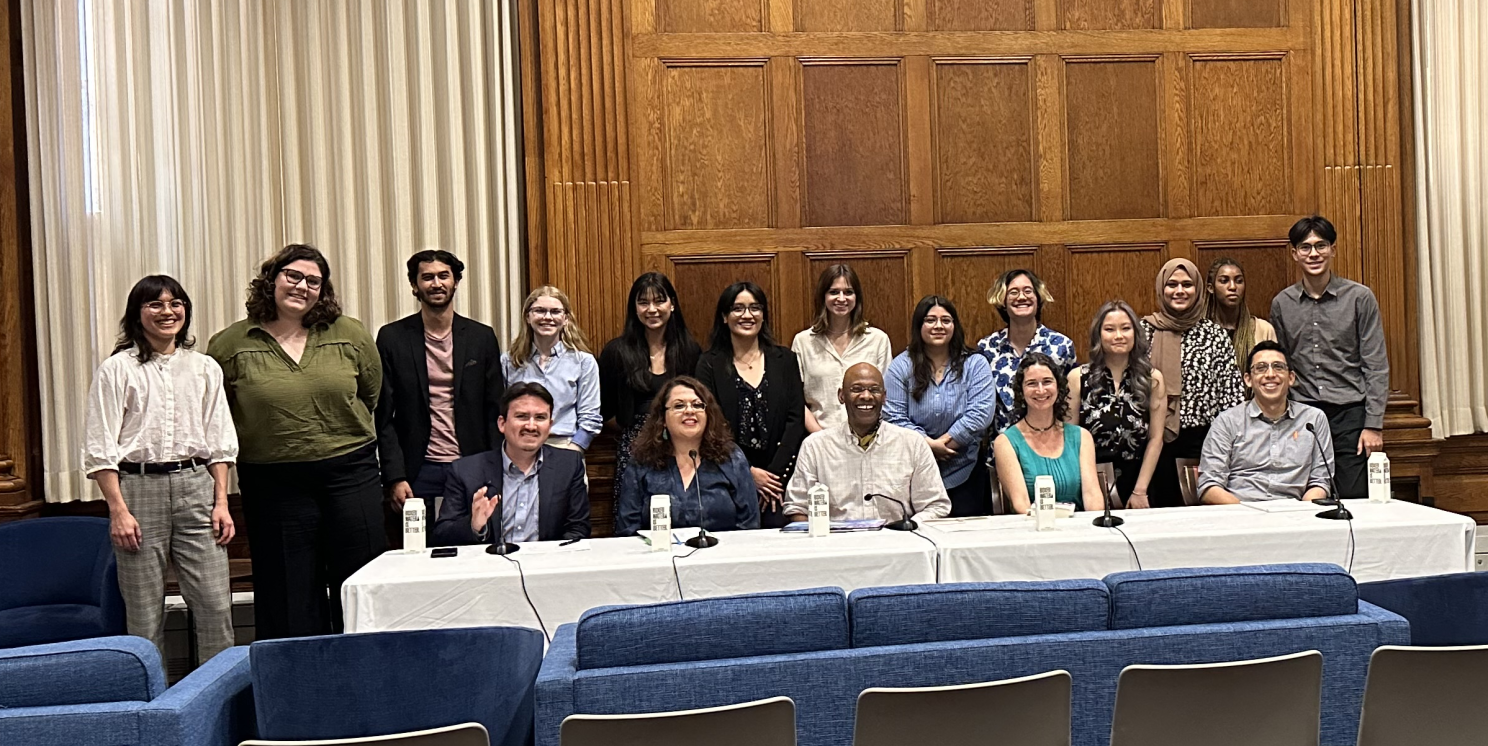Empowering Indigenous, underrepresented voices through scholarship

The 2023 Scholarship and Social Justice Conference celebrates social justice focused scholarship and reflective learning. Photo by Hugo Cardona
When Americo Mendoza-Mori was asked to serve as faculty chair of the eighth annual Scholarship and Social Justice Conference, he imagined a forum where academia inspires activism. As faculty director of the Latinx Studies Working Group and a scholar representing Harvard University’s Ethnicity, Migration, Rights program, Mendoza-Mori convened a team of four outstanding scholars to share ways they leverage their academic disciplines to further human rights work.
“Language is power, but language is seen as a vulnerability,” said Araceli Hernandez-Laroche, a scholar who founded and currently leads South Carolina Centro Latino (El Centro) at the University of South Carolina Upstate. El Centro’s work elevates the Latinx community through civic leadership, mentoring, and activism. Hernandez-Laroche’s work bridges community and creates a platform to advocate for underrepresented students. “We bring in folks who have an A+ in mobilizing communities,” she said.
Mneesha Gellman’s research examining carceral systems in the U.S. and ethnographic fieldwork with Indigenous communities in Mexico provides a more comprehensive understanding about why stories have been quashed and people have been oppressed. She said that re-centering her research to be accountable to and collaborative with the people sharing their stories is essential to the process. “Other people are speaking, I’m just holding the frame,” she said.
Michel DeGraff sees linguistics as a form of liberation to illustrate the vibrancy, depth, and complexity of Creole culture. Haitian Creole is the sole national language spoken across Haiti, but for centuries, French has been the primary language of instruction of the country’s ruling elite. Language effectively protected class-and race-based barriers rooted in colonialism and oppression. DeGraff’s work at the MIT-Haiti Initiative has empowered Haitian students and educators use MIT’s platform to share stories and lessons in Haitian Creole. “The platform is a sandbox for co-creation,” DeGraff said, adding “many hands make the load lighter.”
As an archaeologist, Wade Campbell work honors Indigenous communities that didn’t write about themselves. “History is a discipline that privileges text,” he said. A strength of using archeology as a discipline is that “it’s really hard to ignore the material thing in front of you … it’s the literal testament to members of the community.”
“It’s so important to have these kinds of gatherings,” Mendoza-Mori said, adding that the panelists felt really inspired from their conversations with undergraduate student presenters.
The Scholarship and Social Justice Conference is collaboratively organized by the Center for Public Service and Engaged Scholarship, the Harvard Foundation for Intercultural and Race Relations, Harvard College Women’s Center, and the FAS Inequality in America Initiative. Tulia Falleti, professor of political science at the University of Pennsylvania and an expert on comparative and international politics, serves as the conference’s keynote speaker. The conference also features cross-disciplinary research from over 20 undergraduate scholars.
For more information about the conference, visit the website.





